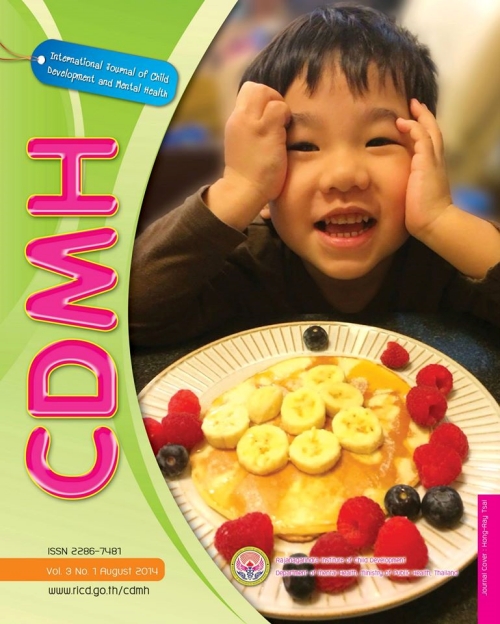Using Narrative to Reflect on Three Therapeutic Models in Taiwan : Lessons for Community Approaches to Child Mental Health
Main Article Content
Abstract
As the shortcomings of deinstitutionalization become evident, models of institution-based
therapeutic communities are starting to appear as promising alternatives. While institution-based therapy models produce desirable outcomes for some categories of mental illness, these lessons have not been applied to exploring community approaches to child mental health. To this end, we use an identity narrative approach to explore the relation between mental illnesses and childhood or adolescent development in narratives of patients treated under different therapeutic models for three conditions: severe mental illness (SMI),
substance abuse and ADHD. Only the ADHD patients were children; the SMI and substance
abuse treatment models were designed for adult patients. But all patient narratives showed the illness had roots in childhood. This secondary analysis examines patient narratives collected from three independent projects between 2005 and 2013. The oral history study of the Yu Li therapeutic model for SMI was conducted from 2005 to 2006. The project documenting a therapeutic model for substance abusers in the Tsao Tun Psychiatric
Center was carried out from 2009 to 2010. Lastly, we took oral histories from participants in an ADHD family support group between 2011 and 2013. The development and nature of these models will be illustrated first, then contrasted, to identify the key elements of empowerment in each type of therapeutic community. We further apply the Jonsen’s four-topic approach to clinical decision making to clarify the ethical dilemmas in assignment of tasks and to distinguish how each division of labor affects patient empowerment. While considering the nature of illness or recovery for different categories of patients, we find narrative understandings are crucial for ascertaining the residual functioning of each patient, and for striking a balance between individual existence and social being. We conclude narrative medicine constitutes a specialized approach for building recovery models and promoting mental health.
Article Details
The authors retain copyright and permit the journal the copyright of first publication
Articles, once having passed the review process and accepted for publication in the CDMH Journal, are copyrighted under the CDMH Journal, Department of Mental Health, Ministry of Public Health. Please be aware distribution of CDMH Journal content for commercial purposes without permission is expressly prohibited. However, distribution with intent to educate, advocate, or spread awareness within the general public and research communities is permitted and encouraged with the understanding that the CDMH Journal Editorial Board do not hold jurisdiction or liability for any accompanying comments, text, or information from third parties, either in favor for or against the original article’s assertions, conclusions, methodology, or content.


